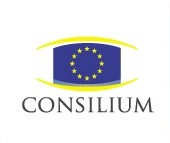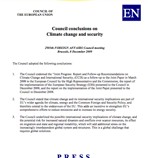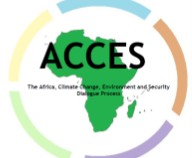Description
The Council is the main decision-making body of the European Union. The ministers of the Member States meet within the Council of the European Union. The presidency is held for six months by each Member State on a rotational basis.
The Council is responsible for decision-making and co-ordination.
- The Council of the European Union passes laws, usually legislating jointly with the European Parliament
- The Council co-ordinates the broad economic policies of the Member States
- The Council defines and implements the EU’s common foreign and security policy, based on guidelines set by the European Council
- The Council concludes, on behalf of the Community and the Union, international agreements between the EU and one or more states or international organisations
- The Council co-ordinates the actions of Member States and adopts measures in the area of police and judicial co-operation in criminal matters
- The Council and the European Parliament constitute the budgetary authority that adopts the Community’s budget.
The Council is a single body, but for reasons relating to the organisation of its work, it meets - according to the subject being discussed - in different “configurations”, which are attended by the Ministers from the Member States and the European Commissioners responsible for the areas concerned. In the 1990s there were 22 configurations; this was reduced to 16 in June 2000 and then to 9 in June 2002. Since the entry into force of the Treaty of Lisbon on 1 December 2009, there are ten configurations. However there remains a single Council in that, regardless of the Council configuration that adopts a decision, that decision is always a Council decision and no mention is made of the configuration. The Council’s seat is in Brussels, where it meets several times a month (meetings are held in Luxembourg in April, June and October).
Council decisions are prepared by a structure of more than 150 working parties and committees comprising delegates from the Member States. They resolve technical issues and forward the dossier to the Permanent Representatives Committee (COREPER), made up of the Member States’ ambassadors to the European Union, which ensures consistency in the work and resolves technical-political questions before submitting the dossier to the Council.
The Council takes decisions by a vote of Ministers from the Member States. There are three types of vote depending on the Treaty provisions for the subject being dealt with: simple majority (for procedural decisions), qualified majority (a weighted voting system based on the populations of Member States; used for many decisions concerning the internal market, economic affairs and trade) and unanimity (for foreign policy, defence, judicial and police cooperation, and taxation).
In a great majority of cases, the Council takes decisions on a proposal from the European Commission and in association with the European Parliament, either through the consultation procedure (e.g. in the areas of agriculture, judicial and police cooperation, and taxation) or through co-decision (e.g. the internal market).



